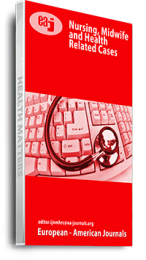User’s health care satisfaction is an important determinant of repeat patronage of health care services and the sustenance of any health care facility. Since little is known about user’s knowledge of available health care services and health care satisfaction in tertiary hospital, this study represents an attempt to fill this lacuna in literature. This study investigated knowledge, perception of available health care services and user’s health care satisfaction in the University of Benin Teaching Hospital Benin City, Nigeria. Sick role model guided the study. The research design was descriptive cross-sectional survey conducted between January and April 2014 on a sample of 420 inpatients using Multi-stage sampling technique in the five units of the facility. A semi structured questionnaire was designed to elicit information on respondents’ socio-demographic characteristics, level of knowledge of the available health care services using a 19 point knowledge scale and user’s health care satisfaction using 20 variables measured on a five point Likert scale. Both quantitative and qualitative data were collected from the inpatients. Whereas the quantitative data were analyzed with descriptive statistics, Chi-square and logistics regression at P< 0.05, thematic analysis was applied to the qualitative data. The study found that there were variations in the levels of knowledge of available health care services. In general, the findings revealed that 90% of the respondents possessed high level of knowledge of the available health care services. Ninety-Five percent indicated a moderate level of health care satisfaction from the health care services received. Chi-square test (X2=22.400) revealed that a significant relationship existed between marital status and inpatient satisfaction with health care service. This study demonstrates the need for the provision of adequate health education on different aspects of available health care services from all providers of health care in the facility bearing in mind users’ prior knowledge so as to be able to address the desired health care satisfaction from the health care services during the period of accessing and utilization of such services in the hospital.
Keywords: Health Care, Knowledge, Satisfaction, Teaching Hospital

